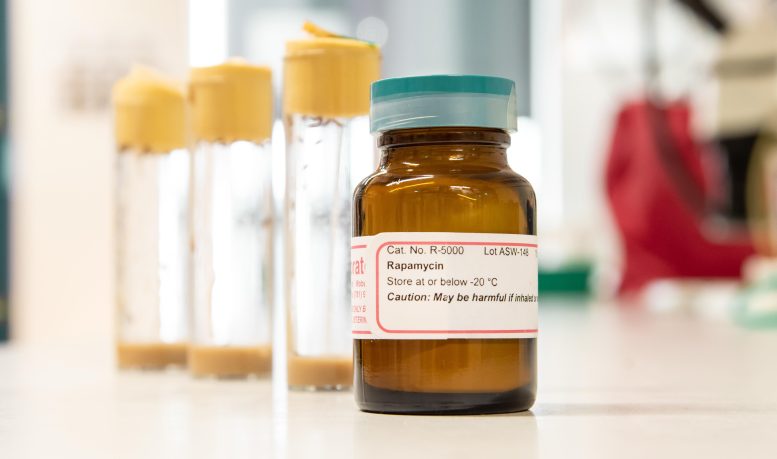
Rapamycin is one of the most promising anti-aging substances to date. Rapamycin is named after “Rapa Nui,” the local translation for the Easter Islands, where the active ingredient was discovered as a metabolic product of bacteria in a soil sample. Credit: K. Link/ Max Planck Institute for Biology of Ageing
Protection against the rise of pro-inflammatory factors that come with aging.
Rapamycin, a drug typically used in cancer treatment and post-organ transplant care, has been found to prolong both the lifespan and health span of lab animals.
Understanding how rapamycin extends lifespan is important, as it helps to prevent unwanted side effects. “We know that rapamycin extends lifespan via two mechanisms: increased autophagy and decreased activity of a protein called S6K. It has been shown that mice with altered S6K live longer. But the mechanism by which S6K extends lifespan is unclear,” says Sebastian Grönke, co-author of the study.
Better immune function in old age thanks to endolysosomes
The researchers were able to show that an altered activity of S6K influences the endolysosomes. These break down material in the cells and play an important role in regulating various cellular processes, such as inflammatory reactions.
“When we suppressed S6K activity or the inflammatory signaling in the fat body, the flies lived longer, showed better immune function at old age, and were able to clear bacterial infections more efficiently,” explains Pingze Zhang, first author of the study.
“Ultimately, we assume that the endolysosomes prevent the age-related increase in pro-inflammatory factors and that this is precisely where rapamycin attacks,” concludes Sebastian Grönke.
Syntaxin 13: a link also found in mice
The researchers also identified an important link between the endolysosomal system and age-related inflammation: the protein syntaxin 13.
This protein is increased in the liver of rapamycin-treated mice, suggesting that the regulation of the endolysosomal system and the control of inflammatory pathways during aging is similar between flies and mice.
Reference: “Inhibition of S6K lowers age-related inflammation and increases lifespan through the endolysosomal system” by Pingze Zhang, James H. Catterson, Sebastian Grönke and Linda Partridge, 27 February 2024, Nature Aging.
DOI: 10.1038/s43587-024-00578-3









Be the first to comment on "Unlocking the Secrets of Youth: How Rapamycin Could Redefine Aging"